Marine Insurance
Get ₹25 Lakh Cover,
Starting At ₹7,000*/year
Quotes in seconds. Coverage in minutes.
Trusted by

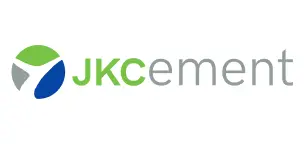
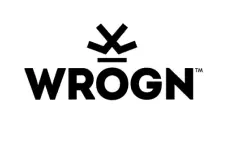
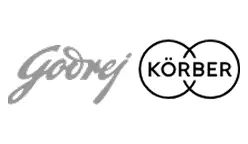


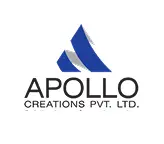
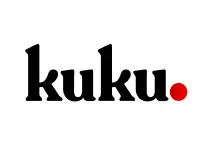
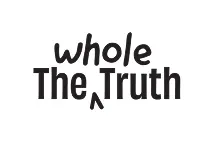











Policies Sold
on Google
Total Sum Insured
Marine Insurance
Get ₹25 Lakh Cover,
Starting At ₹7,000*/year
Get Quotes in a Few Steps
Policy Provided by



Get ₹25 Lakh Cover,
Starting At ₹7,000*/year
Marine Insurance
Protects goods from damage or loss during transportation
WhyChoose BimaKavach?

Speed
Quotes in seconds, coverage in minutes!
Service
Dedicated support, quick replies!
Savings
Best prices, maximum savings!
Understand
Your Insurance
Before Buying
Marine Insurance Made Easy
Click on any topic to see the answer.
To share a topic, click the link icon next to it.
Understand
Your Insurance
Before Buying
Marine insurance is a contract where the insurer agrees to cover financial losses a business may face while transporting goods across sea, air, road, rail or inland waterways. It broadly includes cargo insurance (for goods in transit) and hull insurance (for damage to vessels, machinery or equipment).
See More...Marine Insurance offers practical features that help businesses stay protected during goods movement. Whether you are shipping raw materials, finished goods, or machinery, this policy keeps your cargo secure throughout the journey.
Here are some key features of Marine Insurance:
Wide Transit Coverage
The policy covers transport by sea, air, road, rail, and inland waterways. It applies to both domestic and international shipments.
Start-to-End Protection
Cover starts when the goods leave your premises and continues until they are delivered to the final destination.
Covers Many Types of Loss
The policy protects against risks like fire, theft, collision, overturning, water damage, impact, and pilferage during transit.
Flexible Policy Options
You can choose from different types of marine policies depending on your need—single transit, open policy, or annual turnover-based cover.
Customisable Based on Business Type
Whether you are an importer, exporter, wholesaler, or manufacturer, the terms of the policy can match how your goods move.
Add-On Covers Available
You can include add-ons like warehouse-to-warehouse cover, duty insurance, or strike and riot cover for wider protection.
Marine Insurance gives peace of mind by covering the common risks faced during transport. It helps reduce financial loss and keeps your operations moving without disruption.
Marine Insurance is useful for any business that sends, receives, or manages goods in transit. It protects your shipments from financial loss due to accidents, theft, or damage during transport. If your business depends on the smooth movement of goods, Marine Insurance helps reduce risk and gives peace of mind.
Here are the types of businesses that benefit from Marine Insurance:
D2C Businesses
Direct-to-consumer brands that ship products directly to customers need Marine Insurance to protect against losses during delivery.
Export-Oriented Businesses
Exporters face long-distance and cross-border risks. Marine Insurance covers international shipping and keeps export operations secure.
Manufacturing Firms
Manufacturers send raw materials and finished goods across locations. This policy covers both inward and outward cargo.
Logistics Service Providers With Contractual Liability
Transport companies and freight handlers who take responsibility for goods need insurance to manage any accidental damage or loss.
Wholesalers and Distributors
These businesses deal with bulk shipments across states or regions. Marine Insurance helps protect stock in transit.
E-Commerce Platforms
Online sellers ship high volumes of goods daily. Insurance helps cover claims for damaged or lost parcels during delivery.
If your business moves goods, Marine Insurance is not optional—it is essential. It keeps your cash flow safe, supports customer trust, and helps your business grow without interruptions.
Marine Insurance is not one-size-fits-all. Depending on how often you move goods and how your business operates, there are different types of policies to choose from. Each one is built to meet different needs and levels of shipment frequency.
Here are the main types of Marine Insurance policies:
Single Transit Policy
A Single Transit Policy protects your goods during one specific journey. The cover begins when the goods leave your premises and ends once they are delivered to the buyer. This policy is ideal for businesses or individuals who ship occasionally or have one-time consignments.
It covers risks such as fire, theft, collision, overturning, water damage, and natural disasters during transit. You can use it for transport by road, rail, air, or sea.
This policy is also called Marine Transit Insurance, Single Transit Insurance, Marine Single Transit Insurance, Inland Transit Insurance, or Marine Transit Insurance (Inland).
Real Example:
A trader in Bhopal sent industrial valves worth ₹4.2 lakh to a buyer in Jaipur. The lorry overturned mid-way, and many cartons were damaged. The insurer reimbursed the full value, including ₹15,000 in freight charges and surveyor costs. The trader resumed business without loss.
Single Transit Insurance is essential when your goods are no longer under your control. It ensures that one incident does not cause a big financial loss.
Marine Open Policy
A Marine Open Policy provides automatic cover for all your shipments over a fixed period, usually one year. This policy is useful for businesses that move goods regularly and do not want to take separate policies for each trip.
It starts when the goods leave the warehouse and continues until delivery. It covers risks such as fire, theft, water damage, impact, and mishandling during transport.
This policy is also called Open Marine Insurance, Annual Open Policy, Marine Export-Import Insurance, Marine Declaration Policy, and Marine Open Declaration Policy.
Real Example:
A textile exporter in Solapur sends fabric shipments weekly. The company took an Open Marine Policy instead of buying multiple transit covers.
- ₹24 Lakhs Paid for Fire Damage: One consignment caught fire at the port. The insurer covered the goods and related costs.
- No Delay in Operations: The active policy ensured business continuity.
Open Marine Insurance saves time, reduces paperwork, and provides hassle-free protection for frequent shipments.
Sales Turnover Policy (STOP)
A Sales Turnover Policy covers your annual sales-based transit under one policy. Instead of insuring each shipment, you simply share your turnover figures at intervals. It is a smart option for businesses with high shipment volumes.
It covers imports, domestic movement, exports, and returns — all under one umbrella. The protection starts from dispatch and continues until delivery.
This policy is also known as Annual Sales Turnover Policy, Marine Sales Turnover Policy, Sales-Based Marine Policy, Annual Turnover Marine Policy, and Marine Sales Declaration Policy.
Real Example
A ceramic tile manufacturer in Morbi sends goods across India. Based on projected sales, the company chose a Sales Turnover Policy.
- ₹18 Lakhs Paid for Road Accident: A truck overturned near Bhopal and goods were damaged beyond use. The insurer paid the full loss.
- Continued Dispatch Without Pause: Since the policy covered all shipments, there was no delay in business.
A Sales Turnover Policy helps large businesses stay protected with less paperwork and full-year confidence.
Each policy has a specific role. Whether you ship once or send hundreds of consignments every month, Marine Insurance offers the right option to keep your goods safe in transit.
Marine Transit Insurance is based on globally accepted standards known as Institute Cargo Clauses (ICC). These clauses clearly outline what is covered and what is not under the policy. There are three main types — ICC (A), ICC (B), and ICC (C). Each clause provides a different level of protection and pricing.
Here is a simple explanation of the three:
ICC (A) – All Risks Cover
ICC (A) offers the widest level of protection under a Single Transit Policy. It covers almost every unexpected loss or damage during the journey unless specifically excluded in the policy wording. Events covered include:
- Fire, theft, water damage, breakage, overturning
- Collision, sinking, contamination, piracy, and rough handling
However, this clause does not cover losses from delay, wear and tear, poor packing, internal spoilage, or deliberate acts.
Businesses often choose ICC (A) when shipping expensive, delicate, or time-sensitive goods. Though it costs more, it removes confusion and provides the most complete protection.
ICC (B) – Named Risks with Water Damage Cover
ICC (B) provides mid-level protection. It only covers specific events mentioned in the clause but includes some water-related risks as well. Events covered include:
- Fire, explosion, overturning, collision
- Earthquake, lightning, volcanic eruption
- Sea water entering the container or cargo hold
- Goods falling overboard or dropped during loading/unloading
This type of cover works well for general cargo like steel, bulk goods, or equipment, especially if they are being shipped during the rainy season.
ICC (C) – Basic Accident Cover
ICC (C) gives the most limited cover. It protects your shipment against only major accidents. Events covered include:
- Fire, collision, overturning, derailment, or sinking
It does not cover theft, water damage, pilferage, or rough handling. ICC (C) is usually chosen for goods with low value or durable cargo that can absorb small losses without serious impact. It is also preferred when keeping premium costs low is the priority.
Choosing the Right Clause
Your choice depends on the type of goods, their value, and how much risk you are willing to accept.
- ICC (A) is ideal for full protection
- ICC (B) suits moderately sensitive cargo
- ICC (C) fits low-value or tough goods
Understanding these clauses helps you get the right protection and avoid confusion at the time of claim.
Road Transport
One of the most common modes within India. Trucks, lorries, or commercial vans are used to move goods between factories, warehouses, and retail points.
Marine Insurance covers road transport risks both for short-distance and long-haul shipments.
- Accidents like collisions or overturning
- Fire or explosion during travel
- Theft or pilferage while the goods are in the vehicle
- Water damage caused by rain or flooding on highways
Rail Transport
Used for bulk cargo across long distances. Goods are packed in wagons or containers and moved via goods trains between states. Marine Insurance covers:
- Derailments
- Collisions
- Fire or explosion in transit
- Losses during loading or unloading at railway yards
Rail is cost-effective, but risks remain.
Air Transport
Fastest mode for urgent or international deliveries. Goods are flown as cargo or with commercial airlines. Marine Insurance covers:
- Damage due to air crashes or emergency landings
- Loss from rough handling at airports
- Fire or explosion on board
- Theft or non-delivery at destination
Important for high-value, fragile, or perishable goods.
Sea Transport
Essential for import-export and bulk movement. Goods are shipped in containers across oceans and rivers. Marine Insurance protects against:
- Sinking or capsizing
- Fire on the vessel
- Water damage due to storms or leakage
- Theft or pilferage at sea
- Damage during loading or unloading at ports
- General average – shared costs if ship is sacrificed to save cargo
This is the core mode covered in traditional Marine Insurance.
Inland Waterways
Goods move via rivers, canals, and backwaters in states like Kerala, Assam, and West Bengal. Useful where roads or rails are limited. Marine Insurance also covers:
- Capsizing or collision of small vessels
- Water damage from rain or submersion
- Handling damage during loading/unloading
Cargo is carried on barges or small boats.
Why This Matters
Most cargo journeys involve more than one mode of transport. For example, a shipment may travel from a factory by road, reach the port, move by sea, and finally reach the buyer by rail or truck. Marine Insurance provides continuous cover across all these modes — from dispatch to delivery — ensuring that your cargo is protected at every step.
Marine Insurance protects your goods while they are being transported, whether by road, rail, air, or sea. What is covered under the policy depends on the Institute Cargo Clause (ICC) you choose. There are three options — ICC (A), ICC (B), and ICC (C). Each clause lists specific risks that are covered under the policy.
Let us look at the coverage under each clause in detail:
Coverage Under ICC (A): All Risks
ICC (A) offers the most complete protection for your cargo. It covers nearly every type of accidental damage or loss that may happen during transit unless something is clearly excluded in the policy.
Here is what it includes:
Jettison
If cargo is deliberately thrown overboard to save the ship during an emergency, you are covered for that loss.
Overturning or Derailment of Land Conveyance
If the truck or train carrying your goods turns over or derails, the damage to your cargo is included.
Theft and Pilferage
If your goods are stolen or partly stolen during the journey, the policy pays for the loss.
Fire and Explosions
Any damage caused by fire or explosions while the goods are in transit is covered.
Accidental Damage to Cargo
Unexpected damage caused by sudden impact, mishandling, or shifting of goods is included.
General Average
If there is an emergency and the shipowner takes action to save the cargo — for example, flooding is controlled, or fire is put out — the shared cost is covered under your policy.
Earthquake, Volcanic Eruption, or Lightning
If natural disasters like an earthquake or lightning strike damage your goods, you are protected.
Stranding or Grounding
If the ship becomes stranded or stuck and your cargo is damaged as a result, the policy will pay for the loss.
Package Loss
If cargo is lost overboard or dropped during handling, it is covered.
Handling Damage
Damage that happens during loading, unloading, or while moving cargo between locations is also included.
Collision or Capsizing
If the vessel meets with an accident and flips or hits another vessel, the resulting damage to your goods is covered.
Non-Delivery of Cargo
If your goods are lost or damaged and cannot be delivered to the buyer, the policy will compensate for the loss.
ICC (A) is the best option if your goods are fragile, expensive, or time-sensitive. It provides maximum peace of mind during transport and is often preferred by exporters and businesses that cannot afford any delay or damage.
Coverage Under ICC (B): Limited Risks with Water Damage
ICC (B) offers protection for specific listed events. It is more limited than ICC (A) but includes additional water-related incidents when compared to ICC (C). It is suitable for cargo that is packed securely but still faces certain risks during transport.
Coverage under ICC (B) includes:
Overturning or Derailment of Land Conveyance
If the vehicle or train carrying your goods meets with an accident, you are protected.
Discharge of Cargo at a Port of Distress
If your cargo needs to be offloaded at an emergency port due to a problem with the ship, the resulting damage or cost is covered.
Fire and Explosions
Any loss due to fire or blasts during transit is included.
Earthquake, Volcanic Eruption, or Lightning
If natural disasters damage your goods while in transit, the policy will pay.
Stranding or Grounding
If the ship becomes stuck or grounded and the cargo gets damaged, the insurer will compensate.
Collision or Capsizing
If the ship or transport vehicle crashes or flips, any resulting damage to the goods is covered.
ICC (B) is commonly used for goods like machinery, metal parts, or packaged goods that are not too fragile but still need some level of protection, especially during monsoon or sea transit.
Coverage Under ICC (C): Basic Risks
ICC (C) is the simplest form of marine cover. It only protects your cargo against very specific, serious events. It does not include many common causes of loss, but it is helpful when transporting goods that are not easily damaged or when you want to keep your insurance premium low.
Coverage under ICC (C) includes:
Overturning or Derailment of Land Conveyance
If your goods are damaged because the truck or train overturns or derails, the policy will cover the cost.
Discharge of Cargo at a Port of Distress
If cargo is removed at an alternate port due to a ship emergency, you are protected.
Fire and Explosions
If goods are burnt or damaged due to fire or an explosion, it is included.
Stranding or Grounding
If the ship gets stuck and the cargo is damaged, that loss is covered.
Collision or Capsizing
If the vessel or vehicle carrying your goods hits another object or flips, any cargo loss is paid for.
ICC (C) is best for durable, low-value items where minor damage is not a major concern. It is often chosen when both the seller and buyer agree to accept higher risks in return for lower insurance costs.
Every Marine Insurance Policy has its own list of covered risks. By understanding these clauses, you can choose the right one based on what you are shipping, its value, and the risks involved. Choosing the correct coverage makes sure that your business stays protected even when things go wrong during transit.
Marine Insurance is designed to protect goods in transit. But like every insurance policy, there are certain situations where claims will not be accepted. These are known as policy exclusions. Each Institute Cargo Clause — ICC (A), ICC (B), and ICC (C) — has its own set of exclusions that define when the insurer is not responsible for paying.
Let us explore these exclusions clause by clause:
Exclusions Under ICC (A): Most Comprehensive Cover, But With Key Exceptions
Even though ICC (A) offers the broadest protection, there are important situations where cover is not provided:
Wilful Misconduct
If the damage or loss is caused intentionally by you or someone acting on your behalf, the insurer will not pay. For example, if goods are damaged because of a deliberate act or fraud, the claim will be rejected.
Ordinary Leakage or Wear and Tear
Small losses due to evaporation, seepage, or product shrinkage over time are not covered. These are considered normal parts of transport and not accidental damage. Example: If oil reduces slightly during transit due to natural evaporation, that loss is not payable.
Inherent Nature or Defect of Goods
Some goods may spoil, melt, or corrode on their own even without any external accident. This is called inherent vice. Such losses are not covered because they are part of the product’s nature. Example: If butter melts in high temperature or metal rusts in humid conditions, the policy will not cover the loss.
Insufficient or Inadequate Packing
The responsibility to pack goods properly lies with the shipper. If goods are damaged because they were packed loosely, not cushioned, or poorly sealed, the claim will be denied. Example: If glassware breaks because it was packed in a soft box without padding, the insurer will not pay.
Delay in Shipment
If your cargo arrives late and that causes a financial loss — such as cancellation of an order — it is not covered. Marine Insurance protects against physical loss or damage, not against missed deadlines or delayed business.
Prior Knowledge of Unfit Vessel or Vehicle
If you knowingly use a ship, truck, or aircraft that is damaged or unsafe, and your goods get affected, the insurer is not responsible. The policy assumes that transport is fit and legally allowed to carry cargo. Example: If you use an old vessel that had prior mechanical issues and your cargo gets soaked, you cannot raise a claim if you were aware of the risk.
Exclusions Under ICC (B): Fewer Protections Compared to ICC (A)
ICC (B) includes all the exclusions under ICC (A). In addition, it removes some important covers. These are also excluded:
Theft and Pilferage
If your goods are stolen in full (theft) or in part (pilferage), ICC (B) will not protect you. This is a major reason why many businesses choose ICC (A) instead, especially when goods are high in value or prone to theft. Example: If goods are tampered with during loading or stolen from a container, ICC (B) will not cover the loss.
Package Loss
If cargo is accidentally dropped into the sea, lost during unloading, or slips off a vehicle, ICC (B) does not cover it. This type of loss is only protected under ICC (A). Example: A carton falls off a forklift and is destroyed. You cannot claim under ICC (B).
Handling Damage
Damage that happens during the physical handling of goods — such as loading, unloading, or moving between locations — is excluded. Rough handling is a common cause of damage, but ICC (B) does not protect against it.
Exclusions Under ICC (C): Most Basic Cover With the Least Protection
ICC (C) carries the same exclusions as ICC (A) and ICC (B), but with additional limitations. It is best suited for cargo that is strong, inexpensive, or not sensitive to minor losses.
Package Loss
As with ICC (B), if any package is dropped, falls overboard, or is lost in handling, ICC (C) will not cover the loss.
Earthquake, Volcanic Eruption, or Lightning
Damage caused by these natural disasters is not included in ICC (C). So, if your cargo is at risk from extreme weather or natural hazards, ICC (C) may not be suitable.
Example: If lightning hits the transport vehicle and damages your cargo, you cannot raise a claim under ICC (C).
A Marine Insurance Policy is not limited to sea journeys alone. It is also classified based on where your goods are moving — within India, across international borders, or even between two foreign countries. These classifications help ensure the right protection is given based on geography and sale terms.
Let us break this down in simple terms:
1. Inland Marine Insurance (Within India)
This policy covers the movement of goods within India, using road, rail, domestic air, courier, or inland waterways.
- It applies to any domestic leg — whether you are sending raw materials to a factory, or finished goods to a customer.
- The cover starts from the time goods leave your warehouse and continues until they reach the delivery point within India.
- Insurers usually issue this policy with Institute Cargo Clauses (A), (B), or (C), depending on the risk cover you want.
Useful Add-Ons:
- RSMD (Riot, Strike, and Malicious Damage) is a common add-on that protects against political unrest or labour strikes.
- You can choose between a Specific Policy (for one-time shipments), an Open Policy (for regular shipments), or a Sales Turnover Policy (for high-volume businesses).
2. Import Marine Cargo Insurance (Goods Coming Into India)
Import Marine Cargo Insurance covers goods that are being imported from another country into India. It ensures your cargo is protected across the entire journey — from the foreign seller to your warehouse in India.
- This is usually issued on a warehouse-to-warehouse basis.
- If your sales term is CIF (Cost, Insurance, Freight) or CIP (Carriage and Insurance Paid), then cover starts from the overseas seller’s warehouse.
- If the sale term is FOB (Free on Board) or FCA (Free Carrier), then your insurance usually starts once the goods are loaded on the ship or handed to the first carrier.
It covers risks such as:
- Sea or air transit damage
- Theft, fire, or water damage
- Handling losses at international ports
3. Export Marine Cargo Insurance (Goods Leaving India)
This policy protects goods that are being exported from India to another country. Like import cover, this is also issued as warehouse-to-warehouse, unless the Incoterms specify otherwise.
- If the export term is CIF or DAP, cover continues until delivery to the buyer abroad.
- If the sale term is FOB, the insurance ends once the goods are loaded at the Indian port.
It covers:
- Movement within India to the port
- Sea or air transit
- Losses at foreign ports or delivery points
Exporters often buy this policy to meet buyer requirements, protect their interests, and ensure smooth trade.
4. Coastal Marine Cargo Insurance (Between Indian Ports)
Coastal Marine Cargo Insurance is for goods transported between Indian ports by sea using coastal vessels. It is commonly used for bulk or heavy cargo like cement, steel, or industrial equipment.
This policy:
- Covers movement strictly along Indian coastline — within 150 nautical miles from the shore
Refers to Institute Cargo Clauses, but also includes Indian Coastal Vessel Warranties, such as:
- Age and classification of the vessel
- Limits on sailing distance
- Crew and maintenance compliance
It protects against:
- Collision, stranding, or capsizing
- Fire and water damage
- Handling losses at Indian ports
5. Cross-Trade Marine Insurance (Foreign-to-Foreign Transit)
This is not the same as import or export. Cross-trade (also called Third-Country Transit) refers to cargo movement between two countries outside India, where the Indian party is the buyer, seller, or trader — but the goods never enter India.
Example: An Indian trading firm arranges a shipment from Vietnam to Nigeria without any leg touching Indian soil.
- This type of cover requires a special Cross-Trade or Third-Country Transit Endorsement from the insurer.
- It is commonly used by Indian exporters, manufacturers, or traders operating in global markets.
It protects goods through the entire journey — road, air, or sea — even if it starts and ends outside India.
Marine Insurance Policy premiums are influenced by multiple practical factors. Understanding these helps you make informed decisions and manage your insurance costs better.
Here are the six most important factors:
1. Type of Goods Being Shipped
The kind of goods you are moving directly affects the risk — and the premium.
- Higher-risk items like electronics, glass, chemicals, or perishable goods are more likely to be damaged or stolen.
- Lower-risk items such as metals, packaged goods, or machinery parts usually carry a lower premium.
The more sensitive or valuable the cargo, the higher the risk, and therefore the higher the cost of cover.
2. Distance and Route
The longer and more complex the journey, the greater the risk of loss or damage.
- A shipment passing through multiple states or countries increases the exposure.
- Routes known for poor roads, theft, or political unrest also raise the risk.
Short, safe, and direct routes are cheaper to insure than long or risky ones.
3. Type of Cover Chosen (ICC A/B/C)
Your choice of Institute Cargo Clause affects the level of cover — and the premium.
- ICC (A) offers all-risk cover and comes at a higher price.
- ICC (B) covers named risks like fire, overturning, and water damage.
- ICC (C) provides the most basic protection, often at the lowest cost.
Choosing wider protection means paying more but getting better peace of mind.
4. Value of Goods Declared
Premium is calculated on the sum insured, which includes:
- Invoice value of the goods
- Freight costs
- A buffer (usually 10%) for incidental charges or expected profit
A higher declared value means a higher premium — but also ensures full compensation in case of loss.
5. Mode of Transport
The risk level changes based on how the goods are being moved:
- Sea freight is exposed to water damage, fire, and handling issues at ports.
- Road transport carries accident, theft, and rough handling risks, especially on highways.
- Air transport is usually faster and safer, and sometimes attracts a lower premium for high-value but small shipments.
The chosen mode affects the insurer’s risk assessment and pricing.
6. Claims History
Your track record with insurance matters.
- A clean claims history can lead to lower premiums or discounts.
- If you have raised multiple claims in the past, insurers may consider you high-risk and charge more.
Insurers reward businesses that handle cargo responsibly and submit clean documentation.
Notify Us
As soon as the loss or damage happens, contact us within 2 days. Share all relevant details and documents, such as photos or reports. We will make sure the process starts without any delays.
Surveyor Visit
Once notified, a surveyor will visit your site within 1-2 days to assess the damage. Please avoid moving any damaged items until the surveyor arrives. After that, we will take care of the next steps.
Submit Required Documents
We will guide you through submitting the necessary documents, including the claim form, incident notes, and financial records. Our team will ensure everything is submitted correctly and on time.
Claim Assessment & Approval
Once the documents are submitted, the surveyor will evaluate the claim and provide a settlement amount based on your policy terms. After approval, the insurer will finalise the settlement.
Payment Processing & Claim Closure
Once the settlement is approved, payment will be processed and issued to you or your beneficiary. After payment, the claim will be closed. If any further issues arise, we will be here to support you until they are fully resolved.
Consignment Theft During Highway Transit
In 2023, a garment exporter in Ludhiana was transporting a shipment of branded winter jackets to a wholesaler in Bengaluru. Midway through the journey, the truck was hijacked overnight near Nagpur. The police filed a theft report, and the business raised a claim under its open Marine Insurance Policy. The insurer approved a settlement of ₹9.3 lakhs for the stolen goods and ₹18,000 for emergency transport charges to resend the order. The payout helped the exporter fulfil the delivery without financial strain.
Damage Due to Vessel Sinking at Port
In 2022, a spices trader in Kochi was exporting containers of packed black pepper to a buyer in Dubai. While the vessel was docked at the port before departure, it partially sank due to structural failure, submerging the loaded containers. The goods were covered under an export Marine Insurance Policy with ICC (A) clause. The trader filed a claim and received ₹27 lakhs for the total loss, including freight and incidental costs. This helped the business recover quickly and maintain its export commitments.
Collision Damage During Cross-State Shipment
In 2021, an industrial parts supplier in Pune sent a truckload of machinery components to a factory in Hyderabad. On the way, the vehicle collided with another lorry on a highway, causing multiple crates to shift and break. The goods were insured under a Single Transit Policy. A claim was filed with proper documentation, and the insurer paid ₹6.8 lakhs for cargo damage and ₹9,200 for unloading and salvage operations. The timely payment allowed the supplier to resend fresh components and maintain the project timeline.
Real Review for Real Speed
Vishal Sharma
FounderAutopilot Design


Common Questions Answered
Common Questions Answered
Have questions or need to speak to an expert?
To buy Marine Insurance from BimaKavach, you need to share:
- Basic business details (name, PAN, GST)
- Type and value of goods
- Transport mode (road, rail, air, sea)
- Pickup and delivery addresses
- Packing method
- Invoice or quotation
- Past claims history (if applicable)
Our team helps you choose the right policy and coverage terms.
Marine Insurance meaning - A type of insurance that protects your goods while they are in transit. It covers loss or damage caused by events like fire, theft, accident, overturning, water seepage, or mishandling — whether by road, rail, air, sea, or inland waterway.
Marine Cargo Insurance covers international shipments.
- For importers, it covers goods from the seller’s warehouse abroad to your delivery location in India.
- For exporters, it covers goods from your premises in India to the buyer’s destination abroad.
The policy protects against shipping, handling, and customs risks along the way.
Marine Insurance is not mandatory by law, but it is essential for businesses that move goods. It protects you from heavy financial losses during transit and is often required by buyers, sellers, or financiers in trade contracts.
Key conditions include:
- Goods must be packed properly
- Transport must be by approved carriers
- Policyholder must not act with negligence
- Claims must be filed within the time allowed
- Some risks are excluded unless specifically added
Always read the policy wording to understand your coverage limits.
Have questions or need to speak to an expert?
Learn More About
Marine Insurance
Ready To Buy
Business Insurance?
Join 4,000+ Indian businesses & protect your business today.